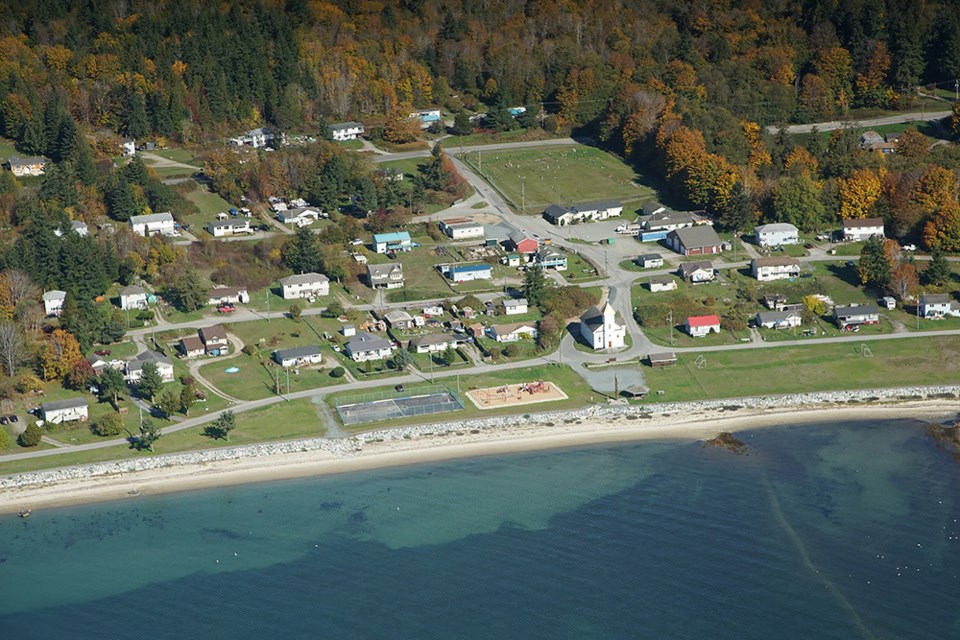City of Powell River councillors have voted to proceed with an exercise looking into the possible renaming process of the city.
At the October 21 city council meeting, council voted unanimously to endorse Tla’amin Nation and City of Powell River’s shared vision that has been developed by both parties. Council also voted to direct staff to advertise for expressions of interest from the public for two positions on a joint working group with Tla’amin, and to allocate $20,000 from general unappropriated surplus to provide project funding.
Councillor Cindy Elliott said the entire initiative was initiated in May of this year at a community-to-community-to-community (C3) meeting, which is a joint quarterly meeting of the city, Tla’amin and qathet Regional District.
“Tla’amin Nation asked the city to consider renaming as the events that were learned about Israel Powell were, well, they were quite horrible,” said Elliott. “Israel Powell was instrumental in not protecting lands in the Tis’kwat (pronounced Tees-kwat) area that were clearly very important to the Tla’amin people at that time. It resulted in the loss of that land to them.
“He was also instrumental in promoting and helping Canada come up with and implement laws that outlawed potlatch. If you know about Indigenous law, legal systems and oral systems, they [potlatch] were instrumental for them carrying out their laws, not just cultural practice. They outlawed Indigenous lawmaking and law-keeping.”
Elliott said Powell was also instrumental in the creation of residential schools and the mandatory system for children to attend those schools.
“So, there was kidnapping of children; we know that now,” said Elliott. “The request came from Tla’amin to please change our city name. We have come up with, in conversations with Tla’amin Nation, a process to engage our city people in helping everyone understand why this is important to the Tla’amin people.”
Elliott said there was mention at the beginning of the process to hold a referendum.
“We’ve tabled that idea for now for a later decision; right now, we are moving forward with a process that will hopefully build a consensus in our community,” said Elliott. “When people understand why this is important to Tla’amin people, we will, through that engagement process, be informed about how best to move forward with the decision about the possible changing of our city name. A decision about a referendum would be down the road, as informed by our process.”
Elliott said the proposal was to have a committee of Tla’amin and city staff, council members and a couple of people from the public, to move forward and decide how best to engage the city.
“We want to engage the city in a fulsome discussion around this issue,” said Elliott. “I’m asking for the support of city council to do that.”
Doubt thanks representatives
Councillor George Doubt said he wanted to thank the city and Tla’amin representatives for coming up with a good process.
“Hopefully, it will get us closer to a consensus about what a name change might be necessary for, and what a possible name change might be,” said Doubt. “I think the consensus idea is the way to go. Referendums, by themselves, without any preparation, are inherently divisive. I think what we want to do is find a way to bring the community together. Having an open process, getting a joint committee going ahead that will get out and open up lines of communication between the Tla’amin Nation, the Tla’amin people and the citizens of the City of Powell River, can get us working towards that, learning from each other and finding a direction where it may become obvious to everybody about where people want to go.
“Trying to get a consensus on where to go is a positive way. The process may not be easy, and it may not be quick, but I think it is the way to go. When we get closer to the end of the process, it will become more clear what we want to do.”
Mayor Dave Formosa said he has talked to many people in the community about this.
“They approach me quite often,” said Formosa. “I had one businessman say this was going to cost $20,000. I hope that when the committee gets together and does their work and figures out the plan forward, and who the contractor will be to help us engage our community, that maybe one of the things they can look at is if a name change comes to a corporation, some ideas on how they could mitigate the cost would come forward.”
Formosa said, for instance, if his company names had Powell River in them, he would wait until he used all of his business cards, his stationery, and he wouldn’t change everything right away.
“Maybe there could be some thought around, if it came to pass, what are the truths about what it would cost a company to change their business issues,” said Formosa.
He also said that if the city is renamed, it doesn’t necessarily mean that it has to be an Indigenous name.
“The issue is the name Powell hurts,” said Formosa. “I’m hearing from Tla’amin that it doesn’t need to be a native name. They just don’t like the ‘Powell.’ I’m not saying it couldn’t be a native name, however.”



